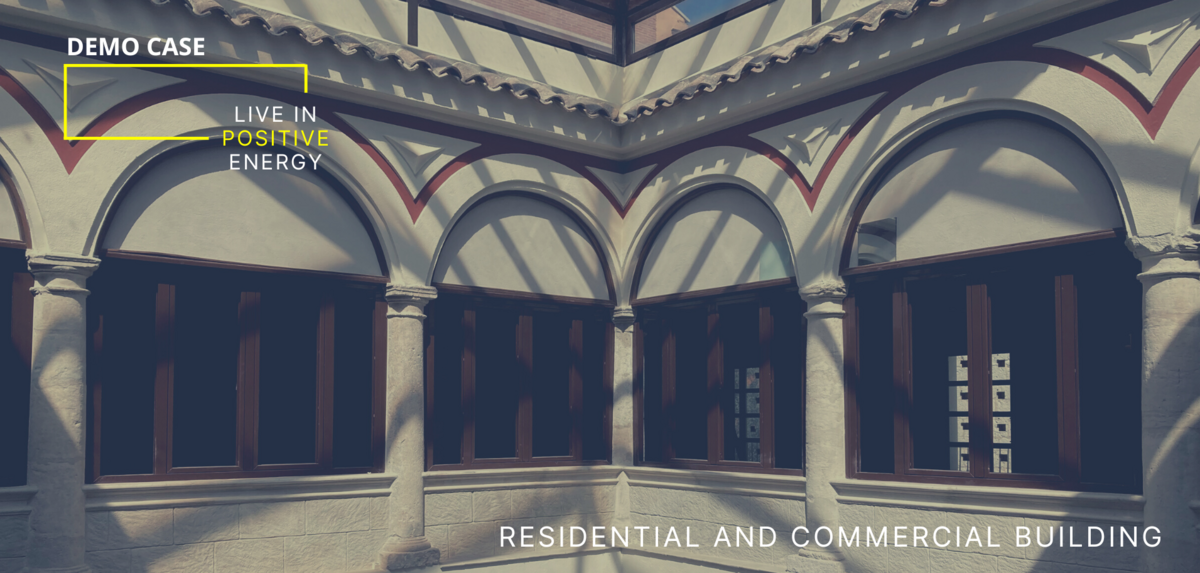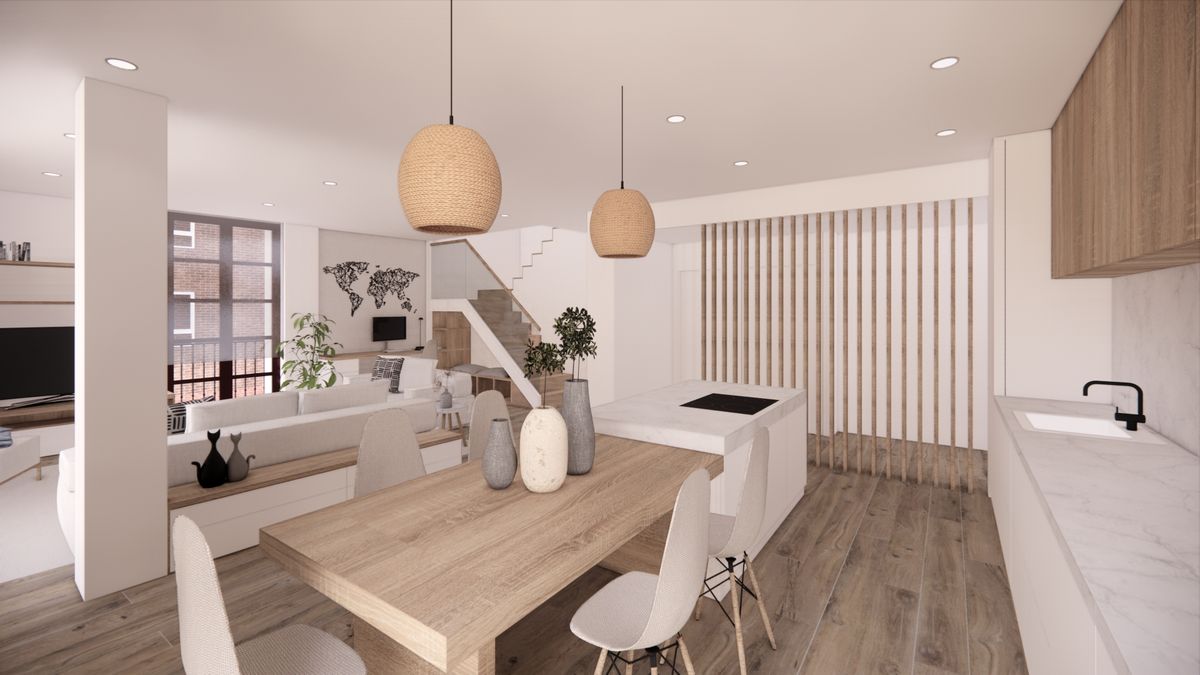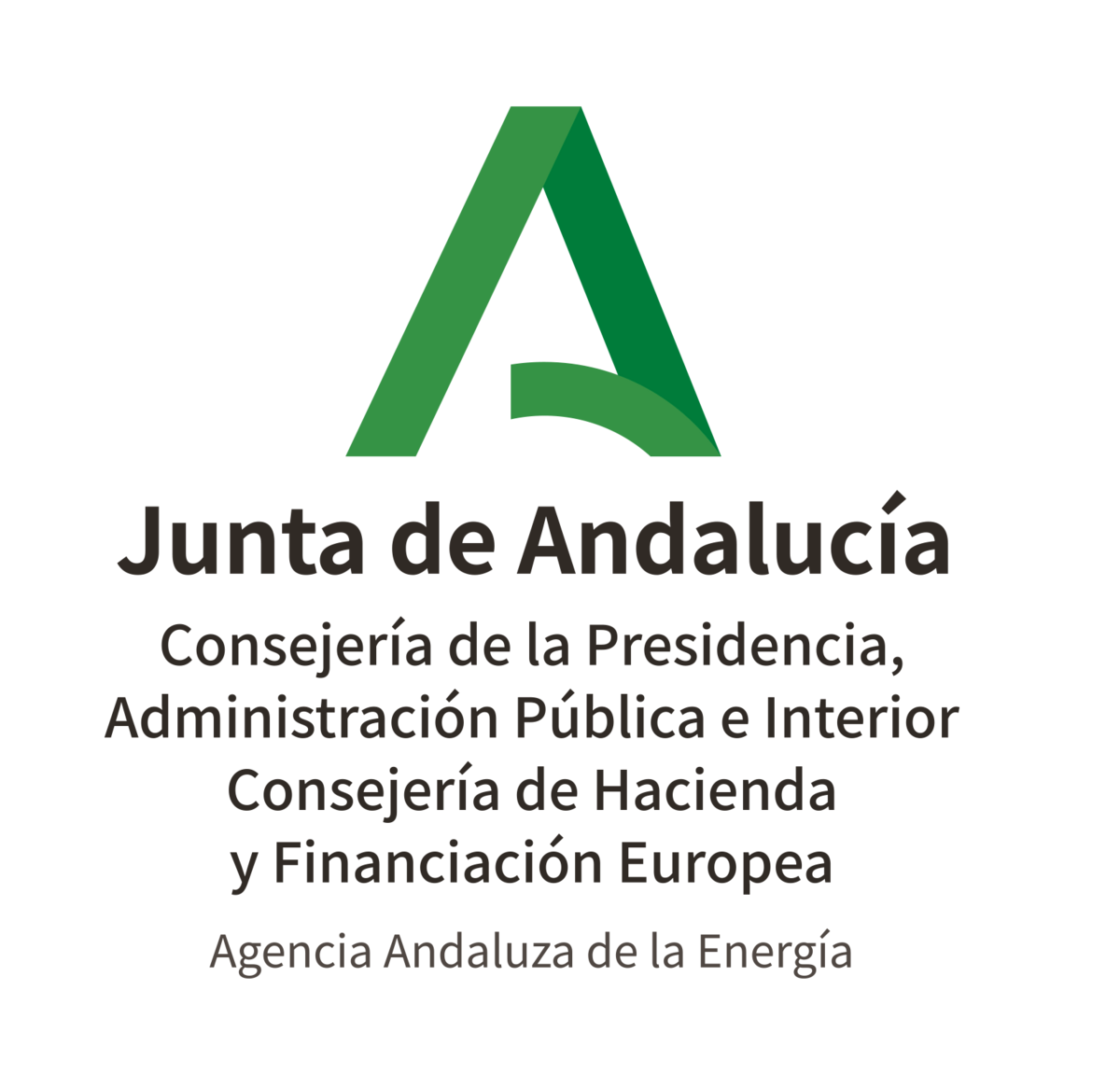
The Spanish demo case is a Renaissance palace from the 16th century located in the historical centre of Valladolid. The historical heritage of the building has been protected in the refurbishment of the palace towards positive energy standards by keeping the façade unchanged. Historic buildings currently represent more than 30% of the European building stock, accounting for more than one third of the total energy consumption of the European residential sector. The EXCESS PEB will therefore set an important example and blueprint for deep renovation of – as well as renewable energy generation and storage integration in - protected historic buildings.
The project included the entire renovation and subdivision into 9 separate apartment units, 5 of them as duplex apartments. To minimise the energy demand while keeping the historical façade, highly energy efficient appliances and other technologies were installed. The internal design of the building has been shaped as to maximise renewable energy self-consumption, making it one of the very first positive energy buildings in Spain.
Key technologies & innovative solutions
The energy concept of the building takes into account the local climatic conditions, which are characterised by mild temperatures and high solar radiation. As sunshine is an abundant commodity in Spain, the Spanish demo concept relies on maximising the electricity production from conventional PV panels installed on the roof of the building. The produced PV energy supplies energy for household electricity for collective self-consumption, and for two EV charging stations. The stations are part of the PEB concept to promote local electro-mobility in the area. The PV surplus energy is stored in a local battery or sent to the grid. Moreover, the building incorporates sustainable design features such as a very efficient envelope and interior thermal insulation, and natural and mechanical ventilation to recover heat from the individual housing units.
The innovative work carried out in Valladolid will feed into replication activities, focusing amongst others on an urban development project in Granada (Spain) called NIVALIS which aims to become Spain’s first Positive Energy District and is informed by EXCESS.

Expanding Flexibility
60 kWh lithium batteries for advanced energy flexibility functionalities and continuous supply.

Building level innovation
Installation of 40KW heat pump for heating & cooling, 53 KWe PVand 2 EV charging stations

System level innovation
An integrated control system enables the balancing of energy generation, consumption and sharing. The human machine interface allows for intelligent, user-centric energy management.

Smart contracts
The Building Energy Management System (BEMS) regulates energy sharing and trading to reduce overall energy consumption.
Milestones
The construction works for the PEB demo site were finalised in May 2024. Since then the demosite has been operating successfully.
Further information & resources
As a H2020 funded project, in-depth and technical information on the demo cases is made available to the public in the form of reports that can be downloaded via the EXCESS resources page (a selection of these is included below). Project plans, renderings and a video are being developed by the architecture studio U·rb atelier.










